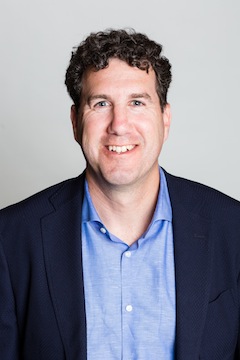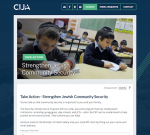An interesting exchange occurred last week between four members of Israel’s Knesset and a Diaspora Jew who warned them that Israel risks losing the support of people like her.
In a forum in Boston, an audience member said Israel had responded disproportionately during the 2014 Operation Protective Edge.
“You are losing me and you are losing many, many, many people in the Jewish community,” the audience member warned. “I want to know what you are doing to make peace with the Palestinians.”
Amir Ohana, a Likud MK, made clear where he stood. “War is horrible. I lost friends, I lost family,” but the audience member was ignoring the thousands of rockets sent from Gaza to Israel, he said. “Each and every one of them [was] targeted to kill us. And if I will have to choose between losing more lives of Israelis, whether they are civilians or soldiers, or losing you, I will sadly, sorrily, rather lose you.”
Rachel Azaria, an MK belonging to the Kulanu party, was similarly critical of the American’s approach. “One of the challenges is that when you’re thousands of miles away, it looks simple,” she said. “To think that we enjoy living in terror and living with our rifles, we hate it. We all hate it. But we can’t seem to find a solution that will keep us strong and sheltered.… If it would be easy, we would be there … I wish reality would be easier, God knows I wish, unfortunately it’s not. And that’s something we need to live with every day of our lives in Israel.”
So, who is right? The alienated Diaspora Jew, or the members of Israel’s parliament? Unsatisfyingly, but perhaps appropriate Jewishly, they all are.
Israel has to make decisions based on the security of Israel, not on the emotional well-being or political ease of Diaspora Jews. Likewise, Jews everywhere have an obligation to stand up when they perceive injustice.
These two positions may seem antithetical, but they are not necessarily. Israelis and Diaspora Jews have always had a deep connection. Both in the state of Israel and in the Diaspora, political ideologies span the gamut. But particular issues and events, like the 2014 war, can exacerbate conflicts in the relationship. Ultimately, though, if we consider Israel and the Diaspora not as two entities but as Klal Yisrael, these disagreements are part of a dynamic discourse that is not only unavoidable, but necessary.
Diaspora Jews frequently criticize Israel and sometimes Israelis act as though these voices are not welcome. Yet the Diaspora provides financial and political support to Israel and, more importantly, the Law of Return means that every Diaspora Jew is a potential citizen. This means something.
And, while Azaria is correct that sometimes things can look overly simple from a distance of tens of thousands of kilometres, it is conversely true that distance can give perspective. Israelis and Diaspora Jews should listen to one another, not reject alternative voices.
Still, as at least one MK noted, it is not the children of Diaspora Jews who are conscripted into the Israel Defence Forces. It must certainly confound some Israeli parents to hear their North American or European cousins complaining about this or that Israeli policy while their own children are on the frontlines of the latest conflagration with Hamas, or are patrolling dangerous neighbourhoods in the West Bank.
Just as politics in Israel is combative and engaging, so it is – and it should be – in the Diaspora. We do not need to agree on everything, but some syntheses should develop that allow for dialogue and progress.
While we fret about the state of Israel-Diaspora relations, though, we should perhaps be more concerned about a different development. We may be heading for a schism that makes our past differences pale.
A new generation of Jews coming up in the Diaspora is much more critical of Israel and tends to be more dovish than their parents or grandparents. There are exceptions, of course, but the young Jews who blockaded the AIPAC conference recently represented a growing cohort, not a diminishing one. Some of their critics say these young people have been taken in by the anti-Israel propaganda on campuses and lack the courage to stand up to it. This may be true in some cases but, by and large, this is a dismissive and insulting suggestion. The different perspectives of young Jews are a real phenomenon and something that leaders – in Israel and around the world – need to respect and respond to.
Above all, we should not fear dissenting voices, but welcome them as part of the Zionist discourse. It is heartening to remember that the degree of passion expressed on all sides of this debate is a symptom of intense engagement. Disinterest would be a far greater threat to Jewish and Israeli life.





